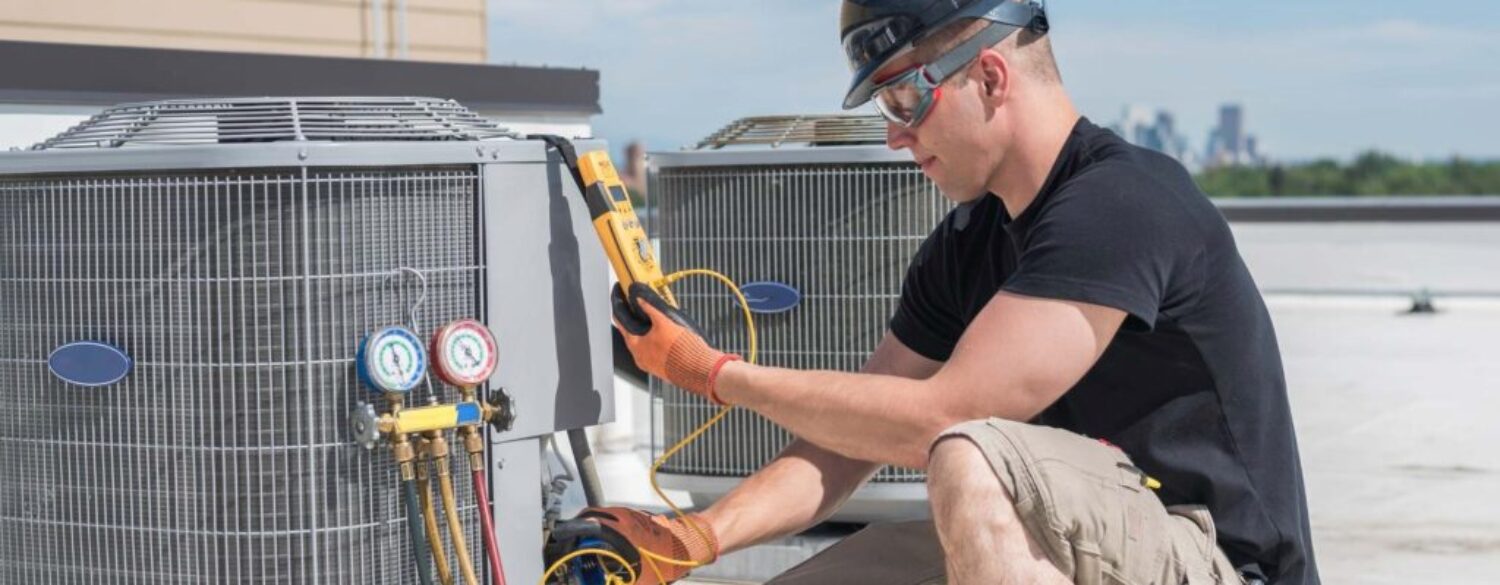What Home Inspectors Look For When Checking Heating and Air Conditioning Systems
Your HVAC system–the components that control your heating and air conditioning– is critical to the safety and comfort of your home. The quality of your HVAC system affects the air you breathe and your monthly energy costs, so it has to be in good shape. However, there are problems unique to HVAC systems that a home inspector may point out during an inspection. Here are 6 common HVAC problems your inspector will look for during your next home inspection.
Ductwork and Old Age
HVAC ductwork ages along with your home, so the inspector will examine ductwork for sagging, cracking, and separating seams. If the ductwork has aged and the material has eroded or or disconnected, this could cause air to leak, thus decreasing air flow (either from the air conditioning unit or the furnace) to the rest of the home and, consequently, driving up energy costs.
Air Conditioning Condenser Issues
An AC condenser, or compressor, is usually found outside the home. The inspector will turn on the AC and listen for signs of electrical issues, like a chattering or ticking noise, which could indicate that the electrical relay switch is wearing out. If the compressor unit is surrounded by dust or debris in the outside area, it’s possible that an external object can get inside the unit and cause it to malfunction.
Air Conditioning Leaks and Emissions
If your home takes a long time to cool off, or if it tends to feel more on the humid side, it’s possible your air conditioning refrigerant is leaking. This can be a dangerous situation if you come in contact with the refrigerant. Lines that contain refrigerant can degrade over time, so the inspector will check inside the AC unit to ensure the lines that contain refrigerant are in proper condition.
Heating Filters
A dirty filter is a common issue seen in HVAC inspections. Filters are usually found in the blower of your home’s furnace, and a dirty filter can decrease air flow to the HVAC system’s air handler, which strains the furnace fan motor. This strain can cause the motor to burn out. Your home inspector will examine the filter and most likely recommend changing the filter on a regular basis to improve air flow and air quality, as dirty filters can aggravate allergies.
Heating Exhaust Flue
The heating exhaust flue allows the byproducts of the furnace’s heating process, such as carbon monoxide, to be released outside your home. If the flue is blocked or malfunctioning in any way, it can result in the dangerous condition of carbon monoxide leaking back into your home. The home inspector will check to make sure that the flue is not clogged or damaged . The best way to prevent gas leaks is by taking care of the flue’s condition and scheduling a vent cleaning for your HVAC system each year.
Heating Electrical Concerns
Homes that have HVAC systems running on electrical power can experience issues like loose wires, improper thermostat wiring, or incorrect or dirty fuses. If your electrical systems are not in proper shape, it’s possible your HVAC system might blow a fuse or trip a breaker while heating your home. Your inspector will check the condition of fuses and electrical wiring connected to your HVAC system and ensure that your furnace has an electrical kill switch in case of emergencies.
It’s best to catch these HVAC problems early on and take preventative measures to ensure they don’t occur in the first place. Get an honest and accurate evaluation of your HVAC system by scheduling an appointment with South Sound Inspections.



